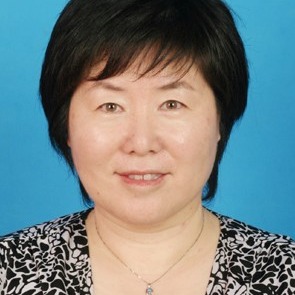Areas of Focus
- Tumor Immunology
- Significance of tumor cell expressed Ig in tumor development
- Tumor immune microenvironment research
- Immunological mechanisms of inflammation to cancer transformation
- Tumor immunotherapy research
Work Experience
- 1982-12 - 1985-08 - Resident Physician, Pathology Department, Heilongjiang University of Chinese Medicine Hospital
- 1988-09 - 1992-08 - Attending Physician, Pathology Department, Heilongjiang University of Chinese Medicine Hospital
- 1996-11 - 1998-11 - Postdoctoral Research, Academy of Military Medical Sciences
- 1998-12 - Present - Associate Professor, Professor, Peking University, School of Basic Medical Sciences, Department of Immunology
Academic Background & Achievements
- 1982 - Bachelor of Medicine from Heilongjiang University of Chinese Medicine
- 1988 - Master of Medical Pathology from Norman Bethune Medical University
- 1996 - PhD in Immunology from Norman Bethune Medical University
Publications
- Binding of the monoclonal antibody RP215 to immunoglobulin G in metastatic lung adenocarcinomas is correlated with poor prognosis, Xiaoyan Qiu, 2015
- Contribution of CCDC134, a Potential Cytokine, to CD8+ T Cell Effector Functions in Cancer Immunotherapy, Xiaoyan Qiu, 2014
- IgG and IgA with Potential Microbial-binding Activity are Expressed by Normal Human Skin Epidermal Cells, Xiaoyan Qiu, 2014
- The immunoglobulin heavy chain VH6-1 promoter regulates Ig transcription in non-B cells, Xiaoyan Qiu, 2014
- Rearrangement and expression of the immunoglobulin μ-chain gene in human myeloid cells, Xiaoyan Qiu, 2014
- Hypoxia and hypoxia-inducible factor-1α provoke toll-like receptor signalling-induced inflammation in rheumatoid arthritis, Xiaoyan Qiu, 2013
- Immunoglobulin gamma heavy chain gene with somatic hypermutation is frequently expressed in acute myeloid leukemia, Xiaoyan Qiu, 2012
- Rearrangement and expression of immunoglobulin μ chain gene in human myeloid cells, Xiaoyan Qiu, 2012
- Spontaneous Production of Immunoglobulin M in Human Epithelial Cancer Cells, Xiaoyan Qiu, 2012
- CCDC134 interacts with hADA2a and functions as a regulator of hADA2a in acetyltransferase activity, DNA damage-induced apoptosis and cell cycle arrest, Xiaoyan Qiu, 2012
- The Role of Human ADA2a in the Regulation of p53 Acetylation and Stability, Xiaoyan Qiu, 2010
- Distinct regulatory mechanism of immunoglobulin gene transcription in epithelial cancer cells, Xiaoyan Qiu, 2010
- Immunoglobulin gene locus events in epithelial cells of lactating mouse mammary glands, Xiaoyan Qiu, 2010
Awards
- 1992 - Second Prize, Science and Technology Progress, Heilongjiang Province
- 1999 - First Prize, Science and Technology Progress by Traditional Chinese Medicine Management Bureau of Heilongjiang Province
- 2000 - Third Prize, Science and Technology Progress, Heilongjiang Province
- 2003 - Second Prize, SCI Papers, Peking University Medical Department
- 2004 - Second Prize, Science and Technology Progress, Ministry of Education
- 2008 - Second and Third Prize, Excellent SCI Papers, Peking University School of Basic Medical Sciences
- 2009 - Second Prize, Excellent SCI Papers, Peking University School of Basic Medical Sciences
- 2010 - Second Prize, Excellent SCI Papers, Peking University School of Basic Medical Sciences
- 2011 - Patent Invention Award, Peking University Medical Department
- 2012 - Patent Invention Award, Peking University Medical Department
- 2012 - First Prize, Excellent SCI Papers, Peking University School of Basic Medical Sciences
- 2013 - First Prize, Excellent SCI Papers, Peking University School of Basic Medical Sciences
- 2014 - Excellent SCI Papers Award, Peking University School of Basic Medical Sciences





